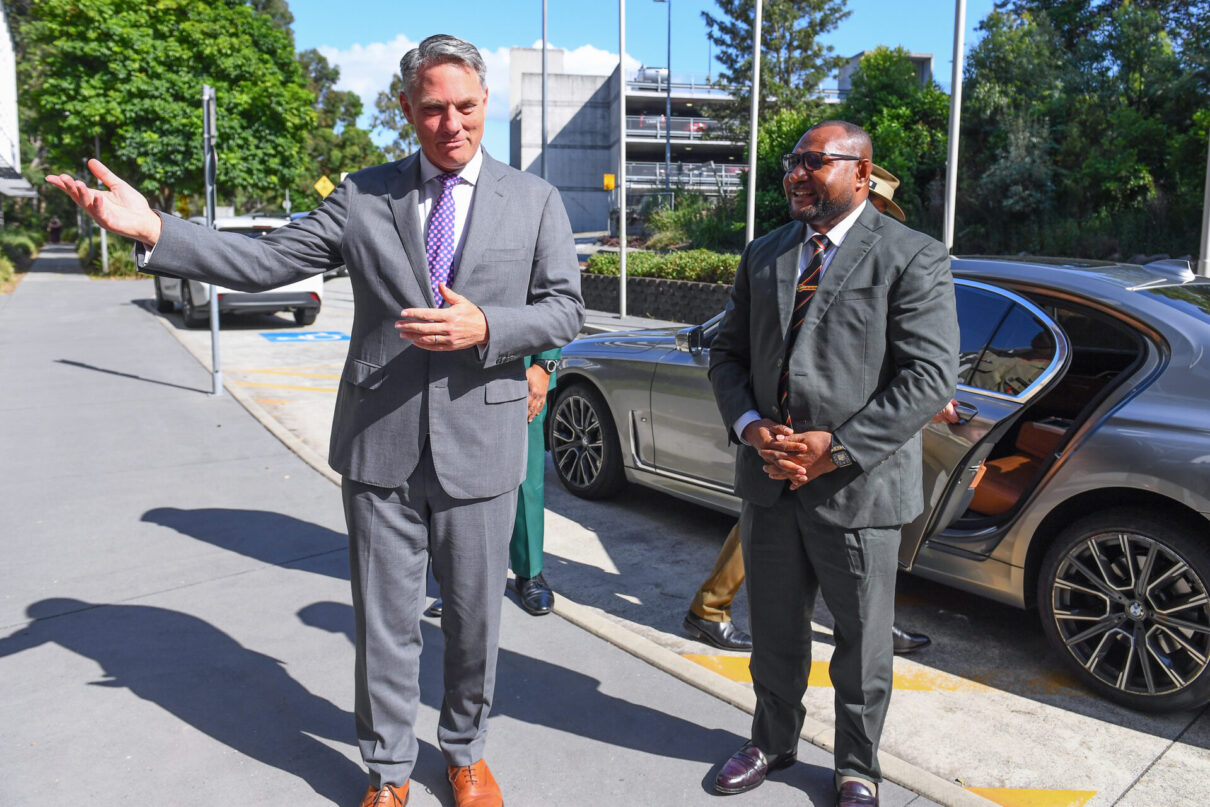Former Labor Prime Minister Ben Chifley famously didn’t own a dinner suit.
He wore what he wanted, and if a lounge suit didn’t suit then the event didn’t suit him.
When being sworn into the Privy Council, he simply refused to partake in the elaborate ceremony and in response to the exasperated Lord Chamberlain, just calmly said “I’ll bet you two bob I’m still allowed in”.
He won the bet.
Chifley was an engine driver before he was a parliamentarian, and he made sure he would wear his working-class blue shirt in rooms where the worker should be represented.
It was a political signal – he was a union man, for the worker, and he made sure his dress, when necessary, represented his origins.
Curtin had workers at the heart of his sartorial signals as well. He was, as Stuart Macintyre wrote in Australia’s Boldest Experiment: War and Reconstruction in the 1940s, “determined to make the Labor Party respectable” and dressed in a three-piece suit.
For him, he wanted the worker to be respected when Labor MPs were in the sorts of rooms that workers at the time would be barred entry.
Greg Combet would make a point of rolling up his sleeves when in meetings, which once helped mark the difference between unionists and the capital class.
Volodymyr Zelensky isn’t the first war-time leader to wear military garb as a link to his people – Winston Churchill spent much of World War II in the nautical uniform of the Royal Yacht Squadron.
These signals matter. They’re a public display of a politician’s values and priorities.
So when those in defence and foreign affairs circles start talking about Richard Marles’ suits and brown shoes, and their similarities to the “big boys” in Washington, you pay attention.
The shoes aren’t new. It’s been a Labor in-joke for years that Marles likes brown shoes. But now that the shoes and the suits are becoming synonymous with ‘a particular Washington defence type’, at the same time as Australia’s sovereignty is being challenged by ‘particular Washington defence types’, points of difference matter.
The links matter. The revelation in The Guardian last week that Marles’ chief of staff Lucien Wells had disclosed a relationship with a lobbyist whose firm includes defence industry clients, matters.
There is no suggestion anyone has done anything wrong or improper. But the Australian people should be aware of potential conflicts of interest.
There should be more to ensure transparency and that conflicts don’t arise, particularly at such a pivotal time in our defence relationships.
There are signs that Australia under the Albanese government may be laying the groundwork to, if not muscle up to the United States, at least lay down some red lines when it comes to AUKUS. The reddest of all being sovereignty.
That is seriously in doubt under the AUKUS agreement – and that’s not something that has just popped up under the Trump administration.
Joe Biden would never have said the quiet part out loud like Trump (very few would), but it has always been implied that if the United States went to war, its submarines and their crews would go too.
Which would include the ones stationed in Australia, under Australia’s flag.
In the last few weeks, Anthony Albanese has started getting louder about sovereignty.
It was a key part of the John Curtin oration and for those watchers paying attention, it’s been the key message Australia has been sending back to the United States.
The US is in the process of adding more conditions to the AUKUS deal that would benefit the United States and, in the meantime, pharmaceuticals are becoming one of the new battlegrounds Trump and his administration are attempting to drag Australia into.
Again, the PBS is another non-negotiable for the Australian government, but it is becoming increasingly obvious that there isn’t a line that Trump and his acolytes are not willing to scrub out.
AUKUS has never been a good deal for Australia. Worse, it was a deal cobbled together by political hyenas to match the politics of the time and not the interests of our nation.
There is no security in a deal that sacrifices Australia’s sovereignty. There is no gain in a deal that could change on a whim depending on whichever hawk had the leader’s ear.
Albanese will spend his time in China walking a diplomatic tightrope, which China is not above stress testing.
But while the nation’s security apparatus is awake to China’s risk, it often has blinders on when it comes to our so-called closest ally, America. Those blinders could have far reaching consequences.
Which brings us back to political signals.
Albanese has been getting louder about sovereignty, but this is not the time for subtlety. It’s the one message the government – all the government – should be shouting.
It does not take a particular boldness to do what is right for your nation. Just conviction.
Between the Lines Newsletter
The biggest stories and the best analysis from the team at the Australia Institute, delivered to your inbox every fortnight.
You might also like
You know what’s more idiotic than a photo op? Walking blindly into the AUKUS pact
There was a lot of hysteria over the symbolism of former premier Daniel Andrews’ photo op with assorted dictators at a Chinese WWII military ceremony, but precious little discussion or analysis of the so-called threats to Australia’s security.
The $368 billion question | Between the Lines
The Wrap with Dr Emma Shortis As Taylor Swift said, if you play stupid games, you win stupid prizes. Last week the Trump administration sent Australia’s national security establishment into a spin when it announced that it was reviewing the Aukus submarine pact to ensure that it fits Trump’s “America First” agenda. But even before
AUKUS and Australian sovereignty with Doug Cameron
Former Senator Doug Cameron calls on the federal government to reject “warmongering” and abandon the AUKUS deal.




